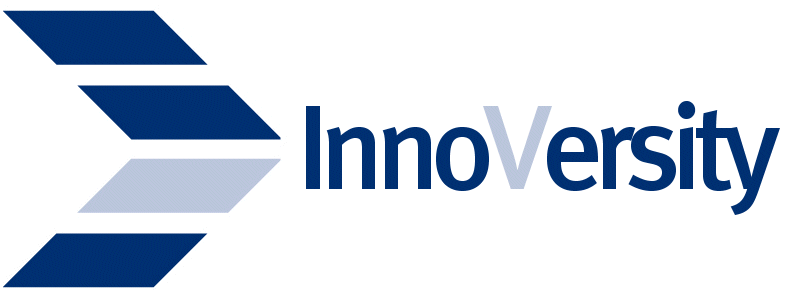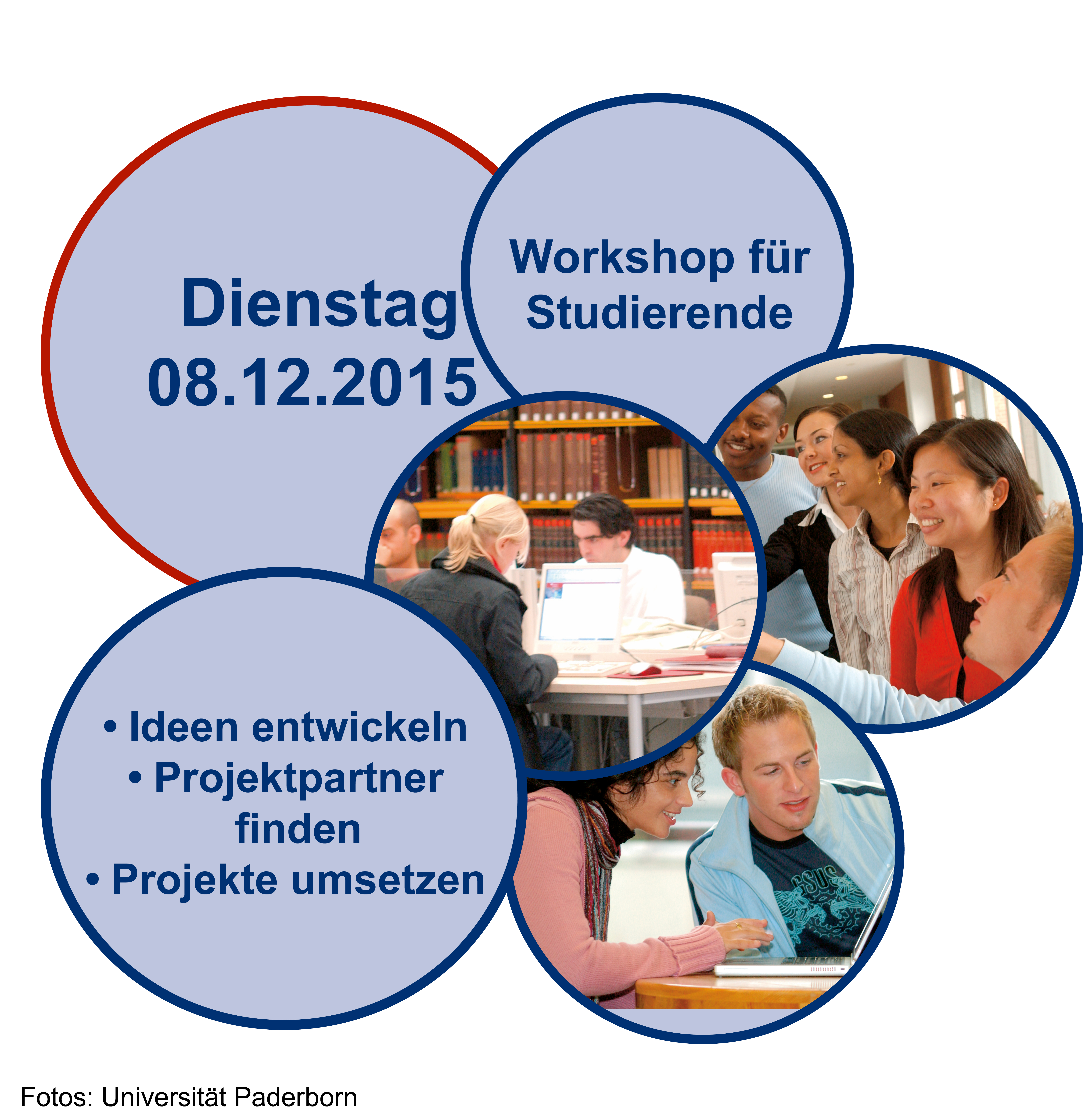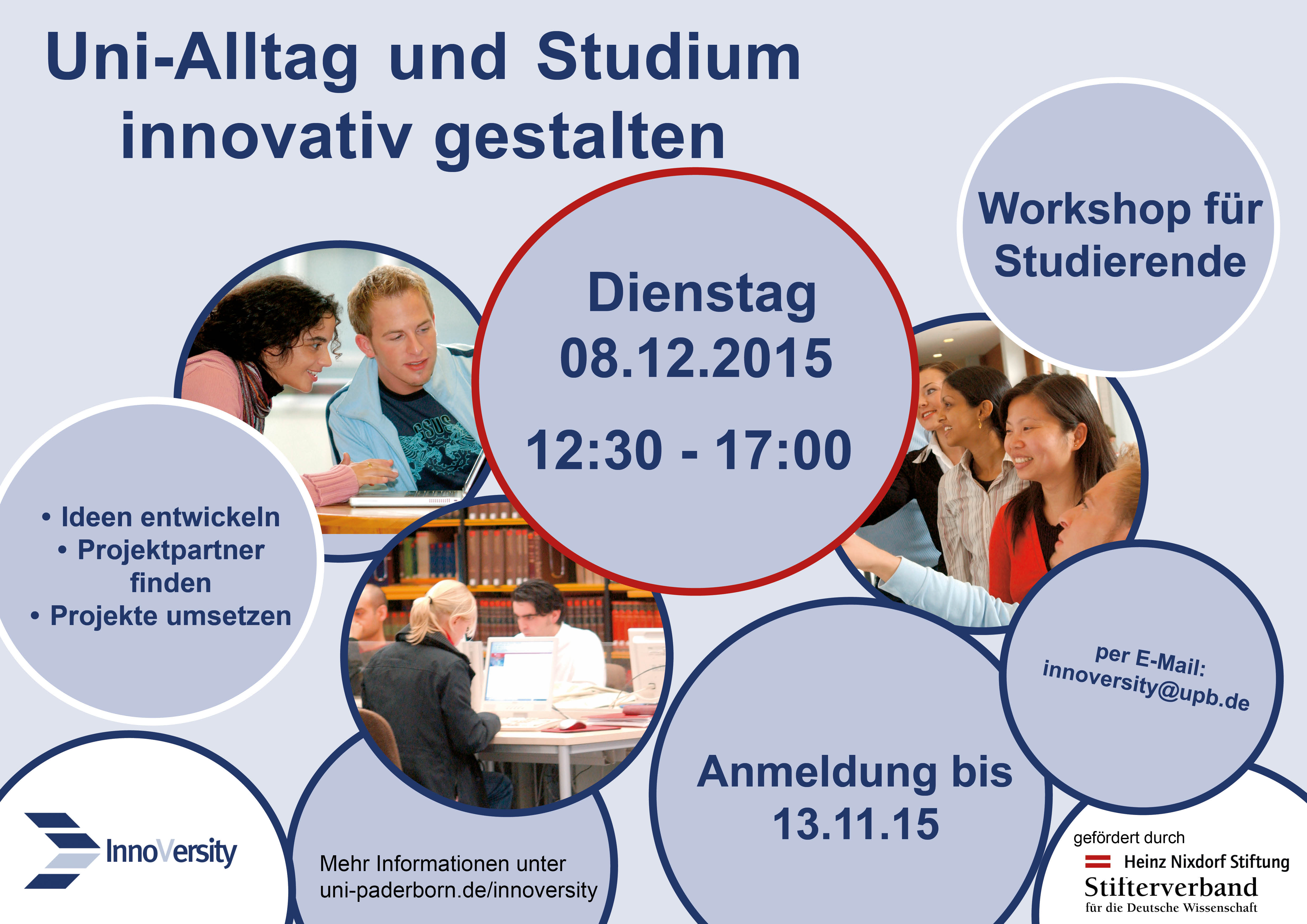Studi-Workshop: Innovative design of everyday university life and studies
Inventor workshop for students on 8 December 2015
On 8 December 2015, the first workshop "Innovative design of everyday university life and studies" took place. This quickly developed into an expert discussion with the participants. The following projects were presented: the infowalls in the AStA and Bibo foyers, the Digital Debating Chamber of the Debating Society, a cafeteria feedback app and an idea for a calendar of events. Most of the participants had already done different projects, so that a wealth of experience in dealing with digitisation projects could be drawn on.
The following best practices or beneficial circumstances were identified:
- Knowledge about access to funding for student projects (financing)
- Knowledge of this and implementation in the right institutional context (e.g. student councils, AStA etc.)
- Knowledge of university structures, of the possibilities that can be taken advantage of, knowing the right contact persons
- clear vision (note on writing down the vision, e.g. in the context of funding applications), professional and serious appearance, project management skills
- open basic interfaces/suitable infrastructure (example: Studierendenwerk Paderborn)
- own creativity and the awareness of one's own needs
- good dialogue with the appropriate bodies
- Knowledge of the technical background and processes
Accordingly, they were formulated as obstructive circumstances:
- lack of knowledge about funding opportunities; the lack of awareness of some student 'funders' about the size of funding was also criticised
- lack of technical affinity of users/end users or within a group
- lack of knowledge about university structures, processes, contact persons, etc.
- political will on the part of the responsible authorities (responsibility, data protection, liability, etc.)
- lack of knowledge about offers (at) the university
- legal matters
- Effort in terms of legal, organisational and political hurdles
The students formulated the following wishes for a university-wide innovation management:
- central advice centre, which provides information on legal and political obstacles, forwards it to contact persons and provides other support
- Guidelines and templates, e.g. guidelines (also with regard to sustainability)
- central web portal (forum etc.) as a card box for ideas, collection of projects, as contact exchange and collection point e.g. of source code etc.
- Workshop offers
- Informing students that they can get involved in the digitisation of the university
- SHK offices that supervise the projects or take over important projects from the university
However, it was also stated that the student character of such projects should not be lost. This includes, for example, that 'muddling through' is an important factor in project work, which is (was) just as important in (one's own) competence development. Innovation management could be a hindrance to this or must leave room for the own knowledge work. The students also wish that their commitment and their projects are valued. It was also emphasised that digitisation offers opportunities which a digitised university or college will change not only in terms of teaching and learning structures but also in terms of participation and living structures.
Result: In the context of the group of students, innovation management must therefore be supportive on the one hand (e.g. through counselling services, workshops, information transfer), but on the other hand it must also leave and open up scope for development. A cooperation with student groups and especially the AStA (e.g. cultural funding pot) should be intensified.
Do you have a great idea for an app that should make your everyday life at university easier or a creative idea for digital learning aids? But you don't know how to implement it or you are missing the right people? Are you still looking for the right programmer or a clever marketing expert?
The workshop "Innovative Design of University Life and Studies" on Tuesday, December 8, 2015, will give students from all disciplines the opportunity to present their ideas, to exchange ideas with each other and to initiate joint projects.
The event is part of the 'InnoVersity' project. The project aims to support the members of the University of Paderborn in developing innovative projects in the field of digitisation of teaching and studies. Students should also be motivated to actively participate in the digitization of the university.
The event starts at 12:30 pm with a small snack. The event will be moderated by Katrijn van Oudheusden, Head of the Department of Organizational Development, Marketing and Technology Transfer at the University of Paderborn. The workshop is free of charge and limited to 20 participants.
Registration until 27.11.2015 under innoversity@upb.de.




